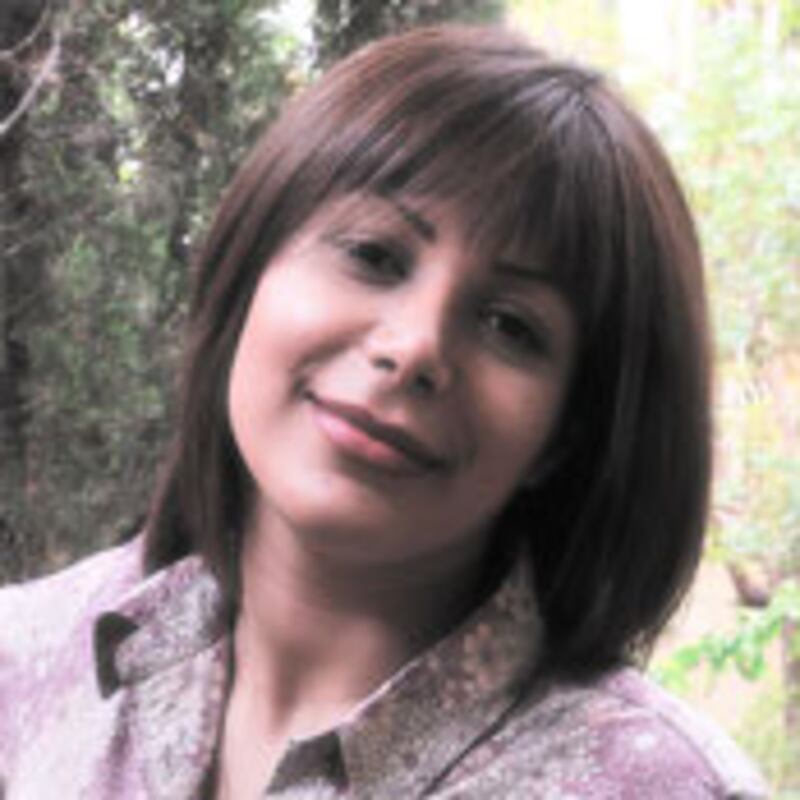
Like many Iranians who are watching their nation's crisis unfold online, I first saw the video of Neda's death on Saturday night. It popped up on my husband's Facebook page, posted by one of the many young Iranians who've changed their last names to “Irani”, or Iranian, to disguise themselves from the country's agents who they suspect of prowling the Internet. My cousin, who had also seen the video surface on her own Facebook page, called from London to talk about it. “Who's going to go into the streets after this?” she demanded. “After Neda, I think this will all be finished.”
I wasn't so certain. Iranian women have emerged as the steely force of will behind these protests, storming university gates with male protesters to the rear, goading men to take on the Basij militia by being the first ones to fight back (a powerful motivator in a traditional culture that expects bravery and heroism of its men). If their fiery determination has dominated the uprising thus far, wouldn't it stand that Neda would inspire them to keep on rather than caution them to give up?
This feminine resolve in the face of such brutal force seems to have captivated and shocked the world, ever since footage of Neda’s death swept the Internet over the weekend… But to anyone who has lived in Iran in recent years, women’s fierceness in the face of authority is not particularly new.
ADVERTISEMENT
That's exactly what's happening, my friends and relatives in Iran tell me. I phoned one girlfriend this morning, and she reported that though people are leading their daily lives as usual, Neda has been all anyone can talk about, from office coolers to grocery shops to exercise classes. People's grief, she said, is tinged with anger not fear or doubt. “Everyone is crying for Neda, but people say these are the tears that will lead us to victory,” she said.
I spoke to another friend who had attended all of the protests but the one on Saturday, during which Neda was killed. “I was too afraid to go to Saturday's protest, I knew it would be bloody. But now that I see Neda's death, I think I can die, too. I am not afraid anymore. Is my blood any redder than hers?” This friend works near Haft-e Tir Square, where many of the protests have converged. Though riot police and Basij militiamen crawled throughout the area yesterday, she said scores of young women showed up for the protest. Many of them, she said, were carrying stones and knifes in their handbags and backpacks, and weren't the least bit afraid.
This feminine resolve in the face of such brutal force seems to have captivated and shocked the world, ever since footage of Neda's death swept the Internet over the weekend. Perhaps it comes as a surprise to the world, accustomed to images of Iranian women either having their noses done or bent over in black chadors mincing herbs. But to anyone who has lived in Iran in recent years, women's fierceness in the face of authority is not particularly new.
When I first moved to Iran as a journalist in 2000, my Iranian girlfriends taught me many things about how to navigate urban life as a young woman. The first lesson was that if I was ever stopped on the street for showing too much hair or ankle or wrist, I must immediately scream shrilly and denounce the person who had accosted me. Preferably I would shout something like, “Don't you have a mother or a sister? Aren't you ashamed of not turning your eyes when you look at me?” This would invert the dynamic of the situation by casting me as a virtuous woman whose honor had been affronted, and the police officer or the Basiji as the lecher, thereby inviting passers-by to intervene on my behalf. It might also cow the young man into backing off. Young women have employed these tactics on the streets of Iran's cities for years, and they've proven startlingly effective. One reason why young women seem so bold when taking on the police and Basiji at protests is that they've had years of practice. Neda's death might highlight for them the consequences of such resistance today, but it has also conveyed that the world is riveted by their courage and firmly on their side.
While women have learned to employ these tactics since adolescence, tactics not unlike what women in self-defense classes in the West are taught, the past four years of Ahmadinejad's tenure has given them more opportunity than ever to hone their skills. Even I, by nature prim and proper before stern displays of authority, learned after the president's 2005 victory that meekness led only to victimhood—it was the quiet ones who were led off to police vans, when the morality police patrolled the streets.
Having learned more now about Neda's background, I find she reminds me of my friend Sanaz, another patently gorgeous resident of the Tehran Pars district of the city. Sanaz also takes music lessons, though she's aware, as Neda must have been, that the Islamic republic only rarely permits women musicians to perform publicly, and bans the female voice altogether. She too attended Azad University, and saved from her modest income to travel the world. Sanaz's life as a young female college student these past four years has been characterized by aggravation and acute disappointment. Her English classes were segregated by gender, she was unable to conduct research for her college papers due to the government's Internet filters, and Basijis at her university crowed in support of government plans to facilitate polygamy and divert the nation's resources to groups like Hamas.
Though never overtly political, Sanaz attended one of last week's protests. I imagined she might too be buoyed by Neda's story, but when we last spoke, her spirits had sunk instead. “I was willing to protest quietly and peacefully for the chance of Iran improving a little,” she said. “But battles and bloodshed? It's not worth it to me anymore, for the sake of Mousavi over Ahmadinejad. In the end, it will be the same regime.”
Despite these thoughts, she also forwarded a new poem by Simin Behbahani, Iran's most renowned feminist poet, that ends on a more fearless note: “If you want to set me on fire or stone me, the match in your hand will be extinguished and the rock rendered harmless.”
Azadeh Moaveni has reported on Iran for Time magazine and other publications since 1999. She is the author of Lipstick Jihad, the co-author of Shirin Ebadi’s memoir Iran Awakening, and most recently, Honeymoon in Tehran.





